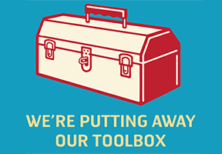Why bother blogging? Being online (Part 2)

The second item in our series about being effective online discusses why blogging can be a powerful tool. However, to get it right you need to know a few key guidelines.
The reason we started blogging seven years ago is the same reason you should consider doing it if you haven’t already: you want to share information with your clients. You want to let them know you’re an expert in your field and that you can help them.
But blogging takes commitment. You need to take it seriously! A good blog boosts your credibility. An infrequent, unfocused or poorly written blog will harm it.
So before you start, ask these four questions:
1. How much time is this going to take?
You need to be brutally realistic about this one. Don’t over commit. If a six paragraph item with a few external links for further reading is what you can manage every month, that’s a good start.
This can probably be put together in about an hour – before it needs to be passed around for a couple of edits. A longer, more thoroughly researched blog can take half a day. It depends on what you need to get your message across.
How often you blog depends on how important it is for your audience to hear from you. If your organization relies on a visible profile you’ll need to be frequent – perhaps once a week. It also depends on where blogging sits in your communications strategy. If you’re using other channels you’ll want to coordinate them. This could include your e-newsletters, Facebook posts or tweets.
Whatever you decide, it’s important to not neglect the blog. Set an expectation for yourself and your readers and then meet it.
2. How much does it cost?
Popular blog services such as WordPress, Blogger and Tumblr are free. So the cost of blogging comes down to how you answered the first question.
- Can you afford to devote four or five hours every week to one in-depth post?
- Or are you looking at just a couple hours a month for one or two quick posts?
- How much is that time worth to you and your organization?
- Can you afford to hire outside help?
At Working Design we’ve mostly been writing our own blogs. But in the last year we’ve hired social media writer Mike Aynsley to kick start items like this series and coordinate our Twitter outreach. Generally we all collaborate on most of the content.
3. What are the key benefits?
Blogs tell your story. They are a space to share interesting and useful things with the audience while establishing your credentials and expertise. There are other benefits too:
- Blogs are an excellent keep-in-touch marketing strategy. Your subscribers will hear from you regularly and you’ll stay top of mind.
- Blogs can help to increase your Google ranking, making your company more visible online
- Blogs provide fresh content for your website so visitors will have something new to read.
- Your fresh blog content gives you something to share on social media if you use it (more on that later on in the series)
- Blogs drive traffic to your website.
4. What’s the risk?
If you start a blog and don’t keep it up, you run the risk of giving your audience the impression that you’re unengaged, or worse, have completely closed up shop. We recently landed on the website of a business we were dealing with and noticed their blog hadn’t been updated since 2011! Their credibility took a serious hit.
Then of course there’s the risk of giving up too much information. We don’t mean trade secrets but rather offering up unwanted opinions and commentary. Unless you’re a partisan organization with a clear mandate, you probably want to save the political opinions for private, off-the-record conversations. Blogs that take on mocking tones can also offend readers.
Your posts needs to reflect what you do and how that matches your audience’s interests. Focus is essential. At Working Design we have lots of interests and opinions outside of our work but you won’t read about them in our blog.
Another blogging hazard is, well, maybe you’re just not ready for it. You’re not quite sure who your audience is, or what your key message is. It’s not easy establishing yourself as a service to clients with an aimless blog. Indeed, you’re more likely to scare off potential leads.
A blog should be taken as seriously as you would any other part of your business. Each item you create is a small chapter in your organization’s story. Blogs serve to underline your key messages and highlight your main areas of work or services.
For example, at Working Design we often write practical articles about many aspects of web development from design to technical issues. We aim to inform our clients in order to help make their job easier as well as letting them know how we work and what we do. The point is to engage and inform. That’s what blogs are all about.
Next up in our series about being effective online: How to start blogging.
